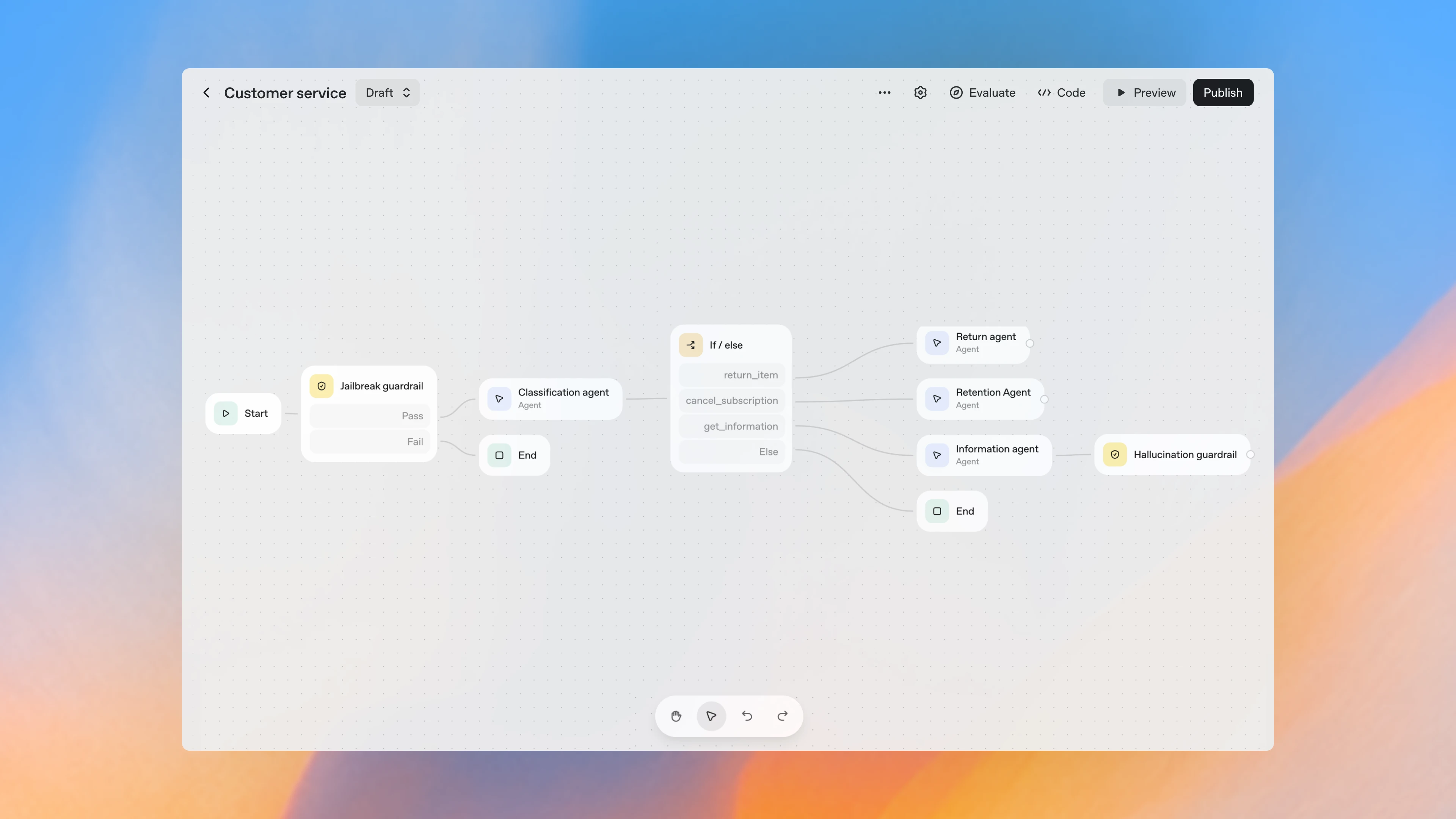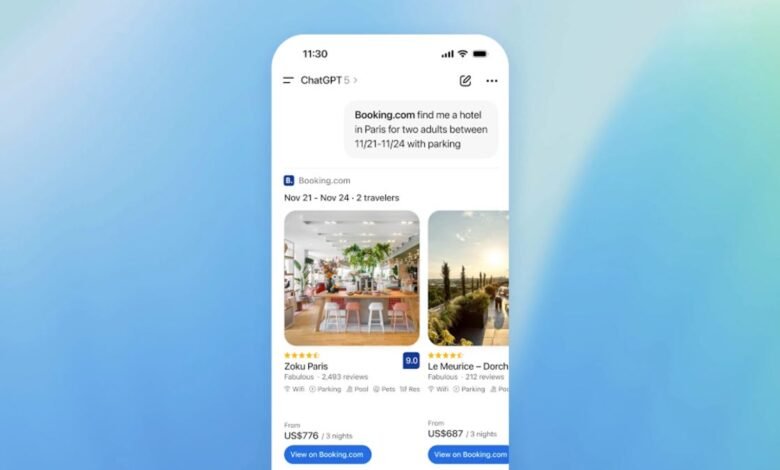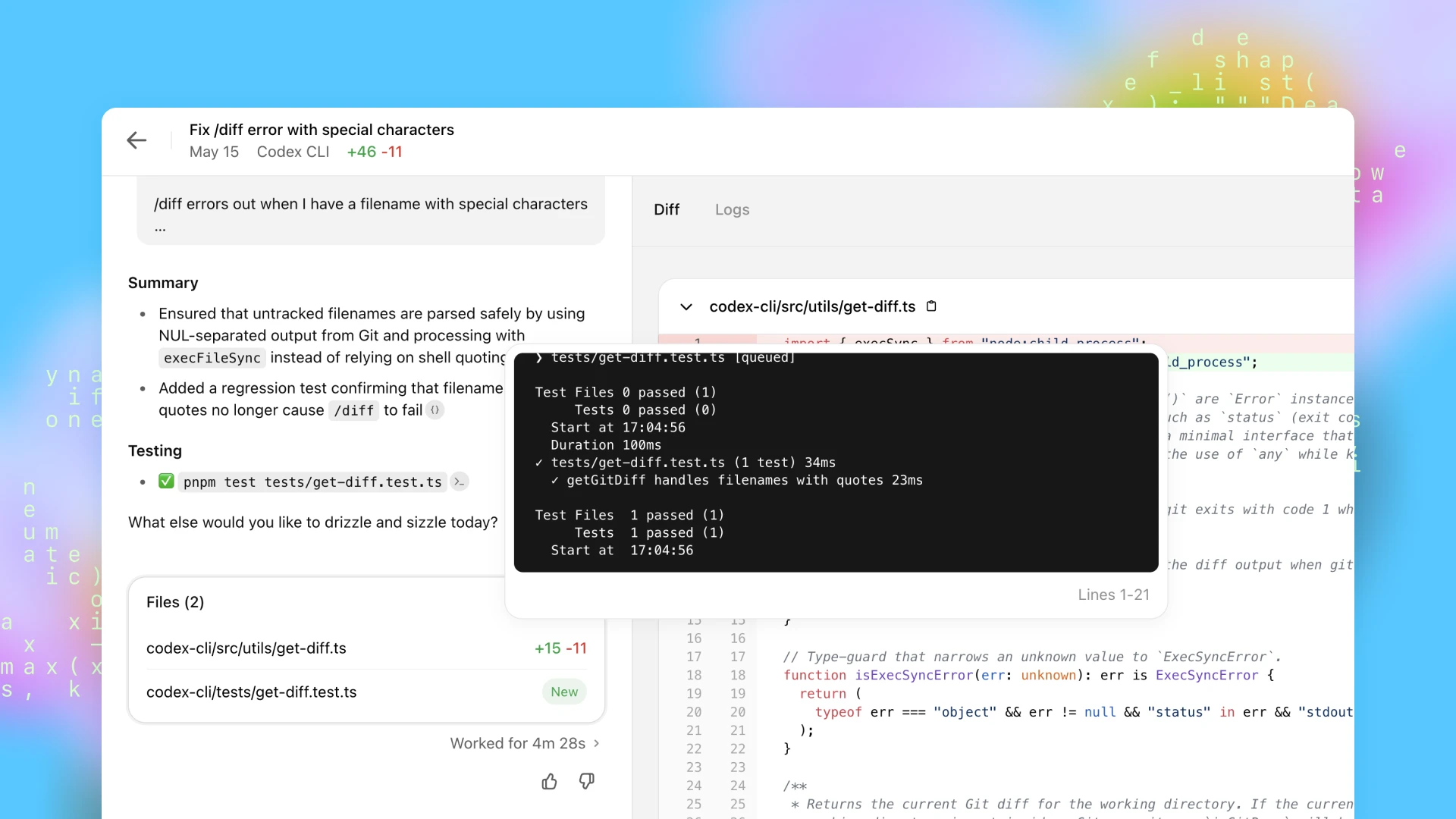On October 6, 2025, OpenAI hosted its annual DevDay in San Francisco, announcing a range of updates that empower developers to build more advanced AI applications. These include new tools, models, and integrations that streamline development, reduce costs, and open new revenue streams. This blog breaks down the key announcements, highlighting new possibilities and why they're game-changers for developers—especially new ones facing monetization challenges on traditional app stores like Apple App Store and Google Play, where 30% commissions and discovery hurdles make profitability tough.
AgentKit: Streamlining Agentic Workflows

Visual of the AgentKit workflow builder interface.
AgentKit is a new toolkit for building, deploying, and optimizing AI agents, featuring components like Agent Builder (WYSIWYG editor), ChatKit (embeddable UIs), Guardrails (safety features), and Evals (optimization tools).
- New Possibilities Enabled:
- Create autonomous agents for multi-step tasks, such as automated customer support or data pipelines.
- Integrate multiple models and tools seamlessly for complex workflows.
- Use built-in safety and evaluation to ensure reliable, ethical AI behaviors.
- Opportunities for Developers:
- Monetize custom agents via marketplaces or enterprise integrations, reaching users without building full apps from scratch.
- Benefit from zero-cost Agent Builder for design and iteration, lowering entry barriers for new devs.
- Unlike app stores' high commissions, OpenAI's pay-as-you-go pricing lets you scale costs with usage, keeping more revenue while avoiding upfront fees.
Apps SDK: Turning ChatGPT into an App Platform

Example of ChatGPT integrating with Booking.com for travel planning.
The Apps SDK preview allows developers to build and integrate third-party apps into ChatGPT using an open standard, with submissions opening later in 2025. Early partners include Canva, Coursera, and Booking.com.
- New Possibilities Enabled:
- Develop interactive apps that use ChatGPT's NLP for tasks like trip planning or design creation.
- Combine AI with real-time APIs for centralized productivity hubs.
- Enable seamless user experiences where ChatGPT acts as an AI OS.
- Opportunities for Developers:
- Reach millions of ChatGPT users directly, bypassing app store discovery issues.
- Create revenue through premium features or partnerships, with OpenAI's usage-based pricing avoiding 30% store cuts—ideal for new devs struggling to monetize.
- Flexible tiers suit startups, allowing cost-effective scaling without fixed subscriptions.
Advanced Models: GPT-5 Pro and Sora 2 in the API

Illustration depicting GPT-5 Pro’s intelligence modes and reasoning capabilities.
GPT-5 Pro brings deeper reasoning to the API, "thinking" longer for complex tasks. Sora 2 and Sora 2 Pro enable advanced video generation, while mini models like gpt-image-1-mini (80% cheaper) and gpt-realtime-mini (70% cheaper) reduce costs.

A realistic AI-generated video frame from Sora 2.
- New Possibilities Enabled:
- Solve intricate problems in finance, legal, or research with GPT-5 Pro's enhanced thinking.
- Generate personalized videos for marketing, training, or VR experiences using Sora 2.
- Build multimodal apps combining text, images, and speech at lower latencies.
- Opportunities for Developers:
- Innovate in high-stakes industries needing accurate AI, like healthcare.
- Leverage cost reductions (e.g., 50% via prompt caching) to prototype affordably, helping new devs compete without large budgets.
- Usage-based pricing means pay only for what you use, unlike app stores where monetization is gated by downloads and fees.
Codex in General Availability: Boosting Code Collaboration

Interface of OpenAI Codex for code generation and debugging.
Codex is now GA with team features like @Codex in Slack, SDK for integrations, and admin tools for management.
- New Possibilities Enabled:
- Real-time code assistance in collaborative environments.
- Automate debugging, generation, and reviews to speed up development.
- Integrate into workflows for efficient software cycles.
- Opportunities for Developers:
- Enhance team productivity, reducing errors and focusing on innovation.
- For indie devs, access enterprise tools at low cost, accelerating prototypes.
- Pay-per-use model benefits new developers by minimizing expenses compared to app store hurdles, where visibility and cuts stifle growth.
Infrastructure Enhancements: Reliability and Performance
OpenAI added a service health dashboard for monitoring metrics like uptime and latency, plus 40% faster API requests on priority tiers.
- New Possibilities Enabled:
- Deploy AI in critical sectors like finance or healthcare with better reliability.
- Monitor and optimize apps in real-time for seamless user experiences.
- Opportunities for Developers:
- Build trustworthy systems that attract enterprise clients.
- Cost optimizations (e.g., flexible processing for 50% savings) make scaling viable for bootstrapped devs.
- Avoid app store dependencies, where updates and fees add friction—OpenAI's model supports direct, efficient monetization.
Conclusion: Empowering a New Wave of AI Developers
OpenAI's DevDay 2025 shifts AI from models to ecosystems, democratizing access with tools that foster innovation and collaboration. For new developers, the pay-as-you-go pricing and platforms like ChatGPT offer a lifeline against app store challenges, enabling easier monetization through usage-based costs and direct user reach. Dive into these updates to build the future of AI—opportunities are ripe for the taking!
OpenAI's DevDay 2025 Updates and Developer Opportunities